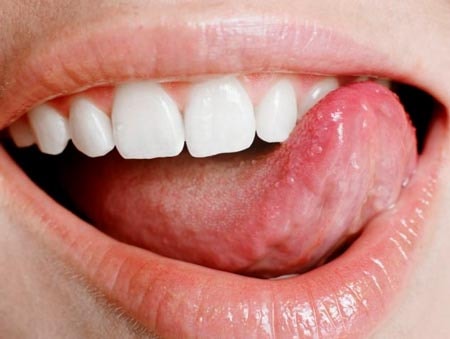Does the human tongue have a sixth sense?
The human tongue may possess a sixth sense, according to new research.
 |
Researchers in New Zealand discovered that, in addition to recognizing sweet, sour, salty, astringent, and bitter tastes, our tongues can also detect carbohydrates—nutrients that break down into sugars and form the body’s main source of energy. Carbohydrates activate brain regions that are not affected by artificial sweeteners, even when people only taste them and don’t chew or swallow them.
"The mouth is a more 'talented' sensory organ than we currently appreciate. The tongue in the mouth can distinguish between carbohydrates and artificial sweeteners, even when they taste identical. Carbohydrates are extremely powerful stimuli that directly and profoundly affect the brain and the systems under its control," said Dr. Nicholas Gant from the Brain Research Center at the University of Auckland (New Zealand).
Scientists have known for some time that rinsing your mouth with carbohydrates increases activity in certain brain regions. Some previous studies have shown that rinsing your mouth with a carbohydrate solution and then spitting it out improves performance during intense exercise.
In the new study, Gant and his colleagues used a special brain-imaging technique called functional magnetic resonance imaging (fMRI) to examine the effects of three different mouthwashes before a simple exercise task. They compared the brain scans of volunteers who consumed a sweet carbohydrate solution with a sweet solution that contained no carbohydrates and a third solution that was neither sweet nor carbohydrate-containing.
The results showed that when the subjects rinsed their mouths with the sweet carbohydrate solution, the brain regions that control vision, are associated with sensation, pleasure, and muscle activity, were activated more strongly than when they used the other two solutions. The fact that the other two solutions did not produce the same effect suggests that we can detect carbohydrates in our mouths through our ability to perceive them separately from sweetness.
Mr. Gant and his colleagues believe that the tongue's "sixth sense" may help explain why athletes react immediately to carbohydrates, becoming more active and healthier when sipping solutions containing these substances, even before the carbohydrates have time to penetrate the body and convert into energy.
The "sixth sense" may also help explain why diets often fail to satisfy us or may help us understand some aspects of eating disorders in humans.
According to vietnamnet
